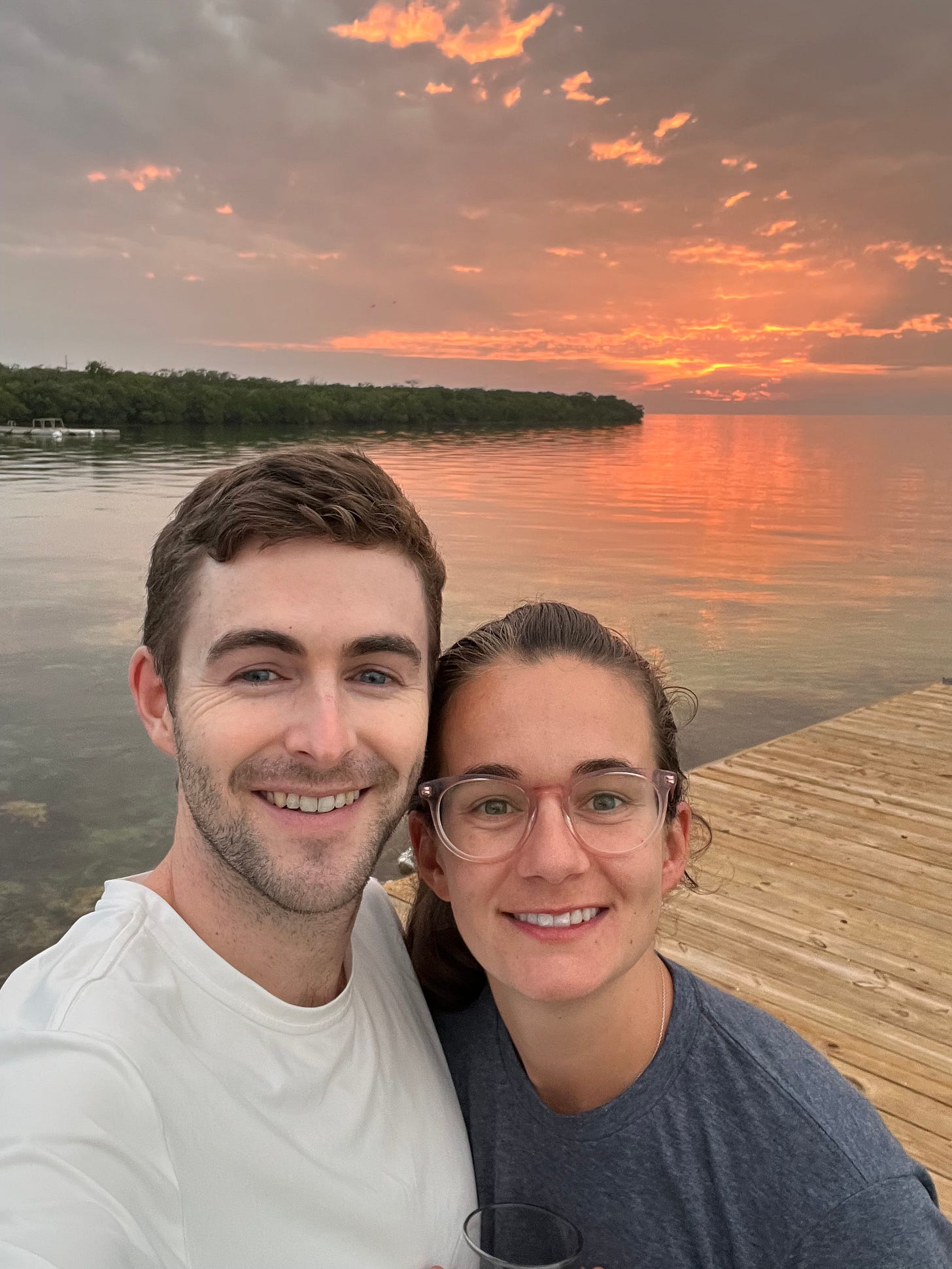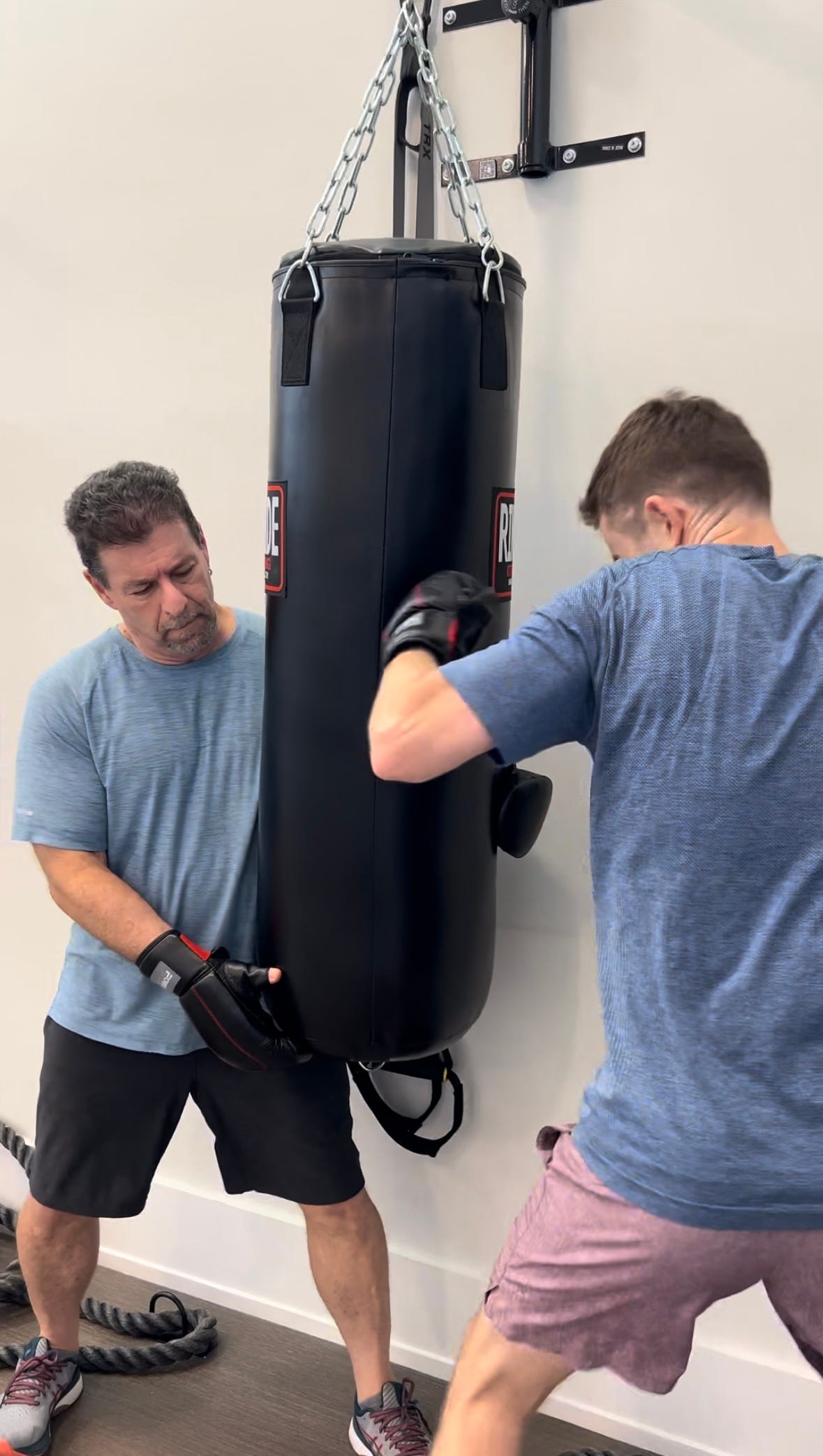Beating Jet Lag, Exercise for Mental Health, & Supporting Healthcare Workers
This week, we’re mastering jet lag, unlocking the mental benefits of exercise, and tackling mental health for healthcare workers. Let’s jump in!
1. Supporting Our Caregivers: My Role with the Dr. Lorna Breen Heroes Foundation
I’m honored to announce my new position as a Board Member of the Dr. Lorna Breen Heroes Foundation, a nonprofit dedicated to breaking down barriers for healthcare professionals to access mental health care.
Who was Dr. Lorna Breen?
Dr. Breen was an accomplished emergency medicine physician who tragically died by suicide during the COVID-19 pandemic. She was a compassionate leader who faced stigma and systemic challenges when seeking help for her own mental health struggles. Her family created the foundation to honor her legacy and address the unique mental health challenges faced by healthcare workers.
Why this matters:
Healthcare workers often put their well-being last, leading to burnout, anxiety, and depression. The foundation works to destigmatize mental health care, advocate for policy changes, and create supportive systems for healthcare workers.
How you can help:
Without year-end action from Congress, vital programs supporting healthcare workers could disappear. Please take 20 seconds to urge Congress to reauthorize these programs:
2. Jet Lag: A Simple Guide to Adjust Quickly
Many of you are planning to travel for the upcoming holidays. Jet lag can turn your trip into a groggy nightmare. It’s caused by the disruption of your circadian rhythm—the internal clock that tells your body when to sleep and when to wake up. When you cross time zones, your internal clock and the external world fall out of sync. But with a little planning, you can minimize the effects and adjust faster.
Before Your Trip:
Shift Your Schedule: Gradually adjust your sleep and wake times. Traveling west? Stay up 30-60 minutes later each night. Traveling east? Go to bed earlier.
Plan Light Exposure: If traveling east, get sunlight exposure earlier in the day. If heading west, get sunlight later in the evening to prepare your body.
Use Caffeine Wisely: Use caffeine in the morning to stay alert but avoid it within 8 hours of bedtime.
During Your Flight:
Eat & Sleep Strategically: Eat meals on your destination’s schedule, even if it feels odd. If it’s daytime at your destination, avoid napping.
Stay Hydrated: Dehydration can worsen fatigue, so drink plenty of water.
When You Arrive:
Morning Sunlight: Get outside within 30 minutes of waking to reset your clock.
Avoid Evening Light: After sunset, use dim lighting to help your body produce melatonin naturally.
Exercise Early: Physical activity in the morning or early afternoon can help your body adjust.
Local Meal Schedule: Eat according to local times to align your digestion with your new time zone.
Final Tip:
For short trips (fewer than 3 days), consider staying on your home schedule to avoid disruption. But for longer trips, these strategies will help you reset your rhythm and enjoy your travels fully.
3. Exercise: A Proven Treatment for Mental Health
Can exercise really help with depression and anxiety? Absolutely. Research consistently shows that physical activity is a powerful tool for improving mental health.
How It Works:
Chemical Boost: Exercise releases feel-good chemicals like endorphins and serotonin which can reduce anxiety, improve mood, and even help with sleep.
Stress Regulation: Regular activity calms your body’s stress response system, lowering cortisol levels.
Brain Health: Exercise promotes neuroplasticity, your brain's ability to adapt and form new connections. Physical activity boosts a protein called BDNF, which helps your brain recover from stress, grow stronger, and build resilience. In simple terms, exercise helps your brain "rewire" itself to handle challenges better and improve emotional well-being.
What Kind of Exercise?
Honestly, it matters less what type of exercise you do — it matters more that you just stay moving. There’s solid data for the benefits aerobic exercise, strength training, even gardening! Walk, dance, bike, swim—anything that gets your heart pumping faster and muscles working. The key is consistency.
Feeling Stuck?
When I was struggling with depression, motivating myself to exercise felt impossible. Start small—try a 5-minute walk or stretch. Ask a friend to join you or set a simple goal, like walking around the block.
Takeaway:
Exercise isn’t a cure-all, but it’s a critical tool in the mental health toolkit. Pair it with other strategies, like therapy, medication (under the guidance of a doctor), or mindfulness, to see even greater benefits.
Thanks for reading, friends! Have a great start to your week — talk to you again soon.
I would love to hear from you! Click below and let me know what topics you want me to cover next!
Sources:
Disclaimer:
This newsletter is for informational purposes only and is not medical advice. Always consult your doctor or a qualified healthcare professional before making changes to your health routine or addressing medical concerns. This content does not establish a doctor-patient relationship. While I strive for accuracy, the information may not apply to your unique situation. If you’re in crisis, please contact a healthcare provider or a crisis resources. Your health and safety are a priority.





I love receiving these newsletters! They are very helpful and informational. I would like to see some more on anxiety and maybe a little on body dysmorphia (or body image issues)? :) Thank you for educating many!
Daughter is in school to finish school psychiatrist degree and I am going to forward you as a recommendation. Keep up the good work. Thank you